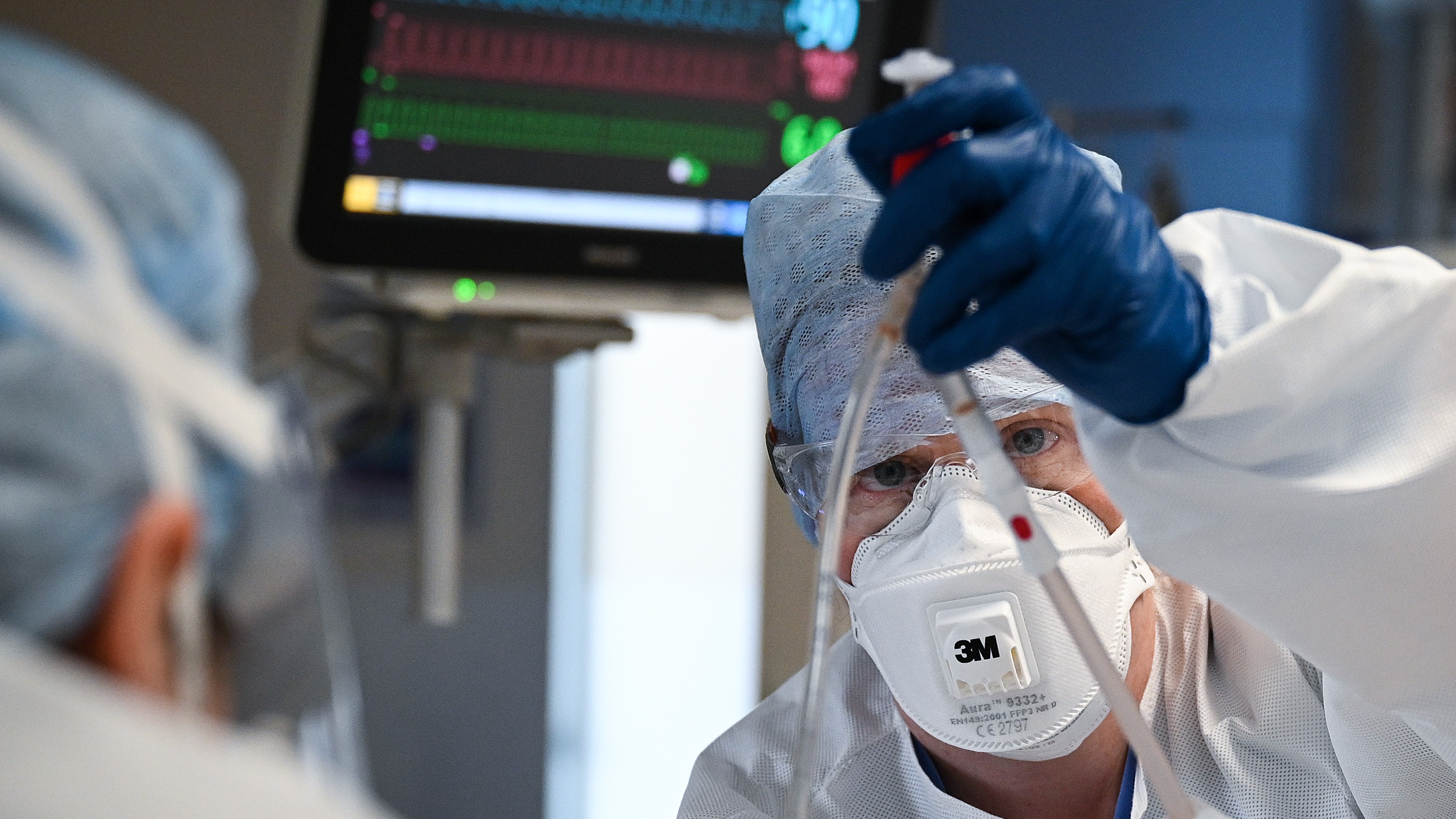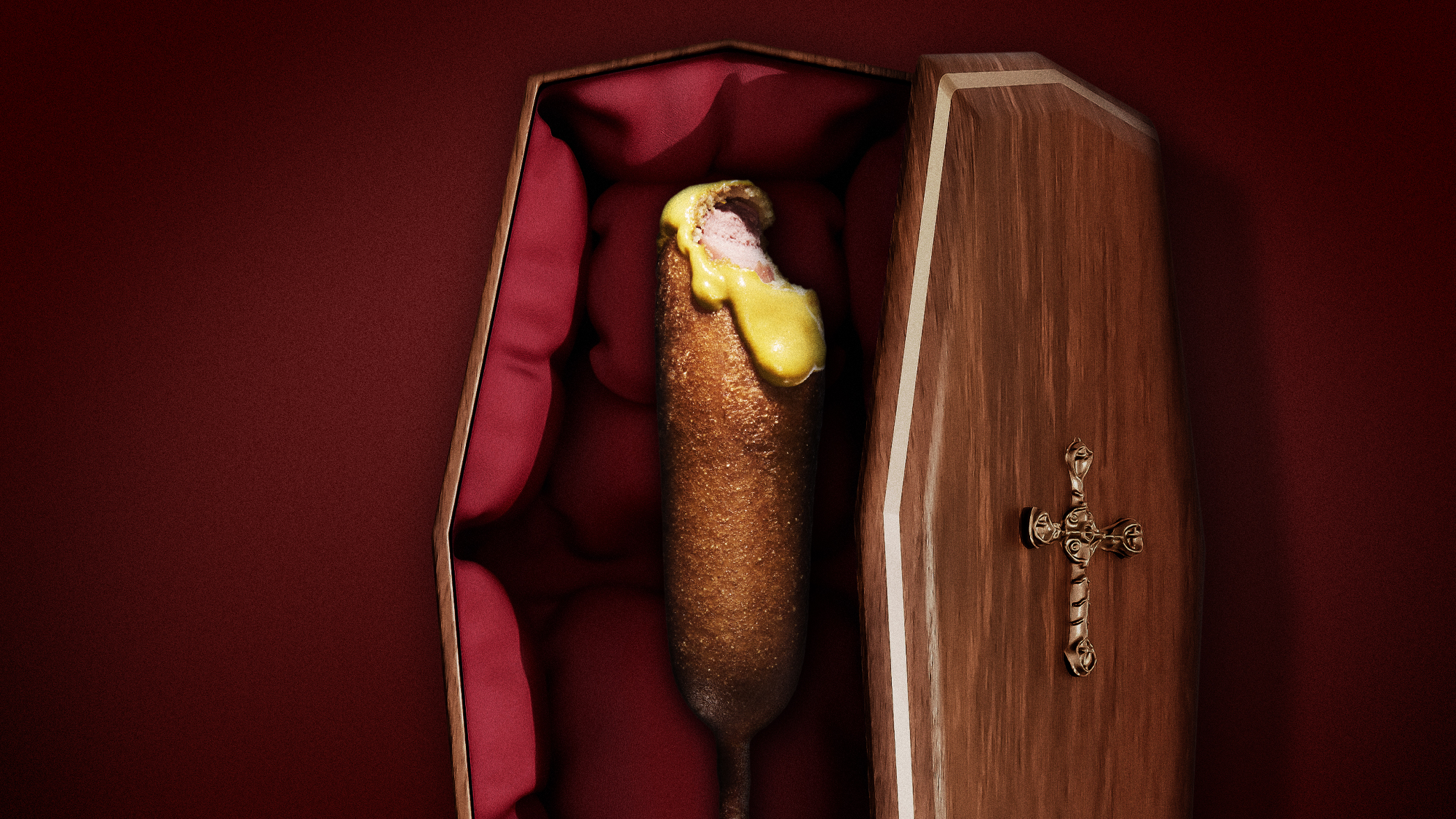How much pressure can the NHS take?
Chiefs say health service is facing the same level of pressure as at the height of the pandemic

A free daily email with the biggest news stories of the day – and the best features from TheWeek.com
You are now subscribed
Your newsletter sign-up was successful
Rising Covid-19 admissions mean the NHS is facing the same levels of pressure on its services as it did in January at the height of the pandemic, health service leaders have warned.
Pressures on the NHS have resulted in “hospitals being short of thousands of beds, with record demand in A&E departments, and the number of Covid patients in hospital rising to more than 5,000 in England for the first time since March”, reports The Independent.
NHS bosses warned last week of a “perfect storm” of pressure on hospitals as the school summer holidays began, with ambulances being forced to wait outside A&E departments overnight, 999 calls left unanswered for up to ten minutes, and operations cancelled in Newcastle, Liverpool, Manchester, Birmingham, Nottingham and London, reports the paper.
The Week
Escape your echo chamber. Get the facts behind the news, plus analysis from multiple perspectives.

Sign up for The Week's Free Newsletters
From our morning news briefing to a weekly Good News Newsletter, get the best of The Week delivered directly to your inbox.
From our morning news briefing to a weekly Good News Newsletter, get the best of The Week delivered directly to your inbox.
NHS Providers, a membership organisation representing hospital and ambulance trusts, have warned that “the overall level of pressure” the health service is facing is “similar to the pressure they saw in January of this year when the NHS was under the greatest pressure in a generation”.
In a letter to Prime Minister Boris Johnson, cabinet ministers and NHS England chief executive Sir Simon Stevens, the organisation called on the government to make “the right decisions” over the next month, as NHS funding is finalised for the second half of the financial year.
The letter warned that hospitals faced a “significant loss of capacity” due to enhanced infection control measures, staff forced to isolate after being “pinged” through the NHS Track and Trace app, and work absences due to stress and mental health problems.
The organisation said that the “next phase of our fight against Covid-19 is likely to be the hardest yet” and that appropriate funding was needed to tackle a “massive care backlog” as well as “a much more complex second-phase vaccination campaign, further waves of Covid-19 and the prospect of one of the worst winters on record”.
A free daily email with the biggest news stories of the day – and the best features from TheWeek.com
NHS Providers also said the 3% pay rise for workers must be funded by the government to ensure trusts "do not have to eat into other budgets".
Covid numbers fall – but hospital admissions rise
The number of coronavirus cases in the UK has “fallen quickly over the past week”, reports the BBC, but case numbers are still more than ten times higher than the levels seen in early May.
But while the number of new cases has fallen for almost a week – the first sustained fall of six days since November – hospital admissions for people with Covid-19 are still rising, “although at a slower rate than during previous waves because of the impact of vaccinations”, says the news organisation.
According to the latest government data, 5,238 patients were admitted to hospital with Covid-19 on 23 July, compared with 4,699 a week ago.
However, The Telegraph reports that national statistics on the number of Covid-19 hospital admissions may “far overstate” the level of pressure faced by the NHS, as leaked data seen by the paper suggests “just 44% of patients classed as being hospitalised with Covid had tested positive by the time they were admitted”.
The data suggests “vast numbers” of admissions “are being classed as hospitalised by Covid when they were admitted with other ailments, with the virus picked up by routine testing”, reports the paper.
Nevertheless, “exceptional” pressures on the NHS are affecting the care of patients in England, as healthcare workers are “pushed to the brink”, reports The Independent’s Shaun Lintern.
Last week, the Care Quality Commission’s chief inspector of hospitals Professor Ted Baker, warned that multiple pressures on hospitals, including long-term systemic issues, were combining together to have a “big impact” on how hospitals provided patient care, as well as having “a big impact on staff, many of whom have been working in a highly pressurised environment now for well over a year.”
What would an overwhelmed NHS look like?
“The danger is not of a sudden collapse, but an escalation of worsening care for patients and increasing pressure on staff,” wrote Professor Christina Pagel in The Guardian in January, as the country faced a difficult second wave that saw over 2,500 hospital admissions per day on average.
Care that is “not immediately essential” could be postponed – such as hip and knee replacements, or scans for chronic diseases like diabetes. “This will mean that some people get sicker in the future because they missed out on care now”, she wrote.
“It is almost inevitable that care suffers”, Pagel explained.
The worst-case scenario – which many doctors, nurses and health care professionals feared was rapidly approaching back in January – is when care providers are forced into “rationing”. This is when “patient care is not just compromised but cannot be delivered”.
“This won’t be dramatic and public – you won’t see patients refused entry to hospital or bodies on the street,” writes Pagel. “It will take the form of doctors being forced to make impossible decisions about which patient can best benefit from a single spare ICU bed when many need one, or how long to wait for a very sick patient to improve before having the conversation with the family about withdrawing care.”
-
 The ‘ravenous’ demand for Cornish minerals
The ‘ravenous’ demand for Cornish mineralsUnder the Radar Growing need for critical minerals to power tech has intensified ‘appetite’ for lithium, which could be a ‘huge boon’ for local economy
-
 Why are election experts taking Trump’s midterm threats seriously?
Why are election experts taking Trump’s midterm threats seriously?IN THE SPOTLIGHT As the president muses about polling place deployments and a centralized electoral system aimed at one-party control, lawmakers are taking this administration at its word
-
 ‘Restaurateurs have become millionaires’
‘Restaurateurs have become millionaires’Instant Opinion Opinion, comment and editorials of the day
-
 A Nipah virus outbreak in India has brought back Covid-era surveillance
A Nipah virus outbreak in India has brought back Covid-era surveillanceUnder the radar The disease can spread through animals and humans
-
 Is the US about to lose its measles elimination status?
Is the US about to lose its measles elimination status?Today's Big Question Cases are skyrocketing
-
 A real head scratcher: how scabies returned to the UK
A real head scratcher: how scabies returned to the UKThe Explainer The ‘Victorian-era’ condition is on the rise in the UK, and experts aren’t sure why
-
 How dangerous is the ‘K’ strain super-flu?
How dangerous is the ‘K’ strain super-flu?The Explainer Surge in cases of new variant H3N2 flu in UK and around the world
-
 Covid-19 mRNA vaccines could help fight cancer
Covid-19 mRNA vaccines could help fight cancerUnder the radar They boost the immune system
-
 The ‘menopause gold rush’
The ‘menopause gold rush’Under the Radar Women vulnerable to misinformation and marketing of ‘unregulated’ products
-
 Is this the end of ultraprocessed foods?
Is this the end of ultraprocessed foods?Today's Big Question California law and the MAHA movement are on the same track
-
 Can TrumpRx really lower drug prices?
Can TrumpRx really lower drug prices?Today’s Big Question Pfizer’s deal with Trump sent drugmaker stocks higher